Abstract
Problem-based learning (PBL) has been adopted by many medical schools in North America. Because problem solving, information seeking, and lifelong learning skills are central to the PBL curriculum, health sciences librarians have been actively involved in the PBL process at these medical schools. The introduction of PBL in a library and information science curriculum may be appropriate to consider at this time. PBL techniques have been incorporated into a health sciences librarianship course at the School of Library and Information Science (LIS) at the University of Wisconsin-Milwaukee to explore the use of this method in an advanced Library and Information Science course. After completion of the course, the use of PBL has been evaluated by the students and the instructor. The modified PBL course design is presented and the perceptions of the students and the instructor are discussed.
Full text
PDF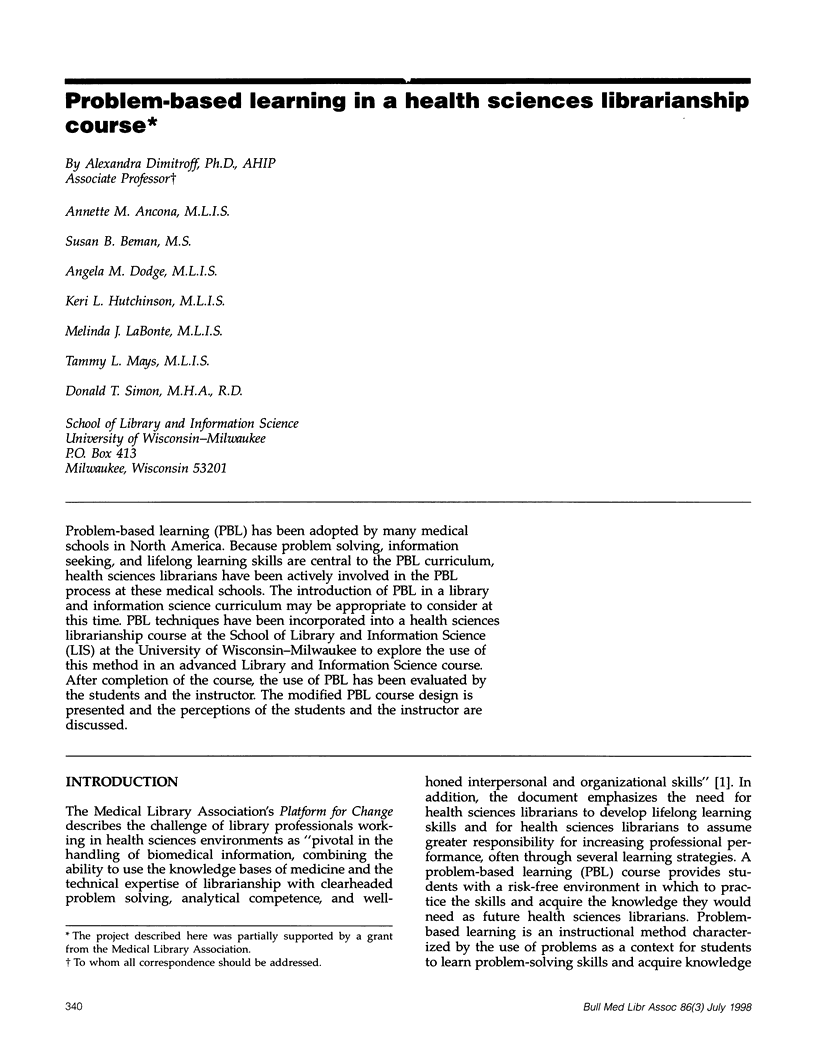
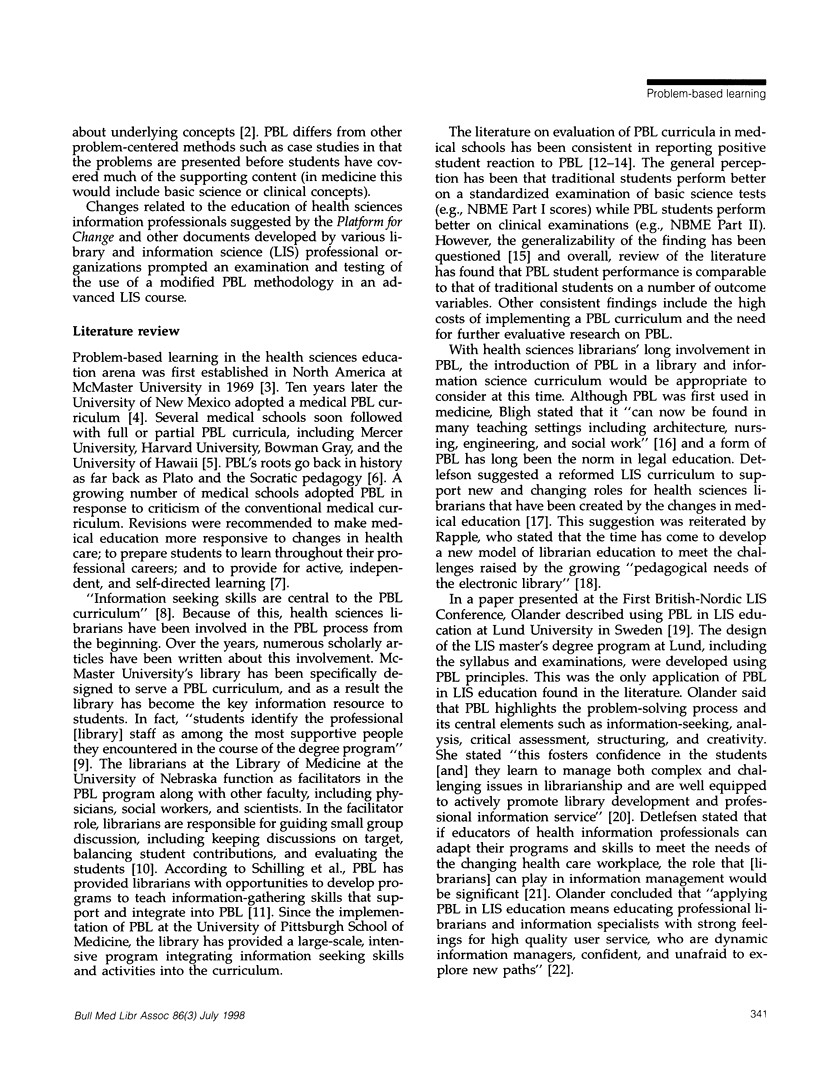
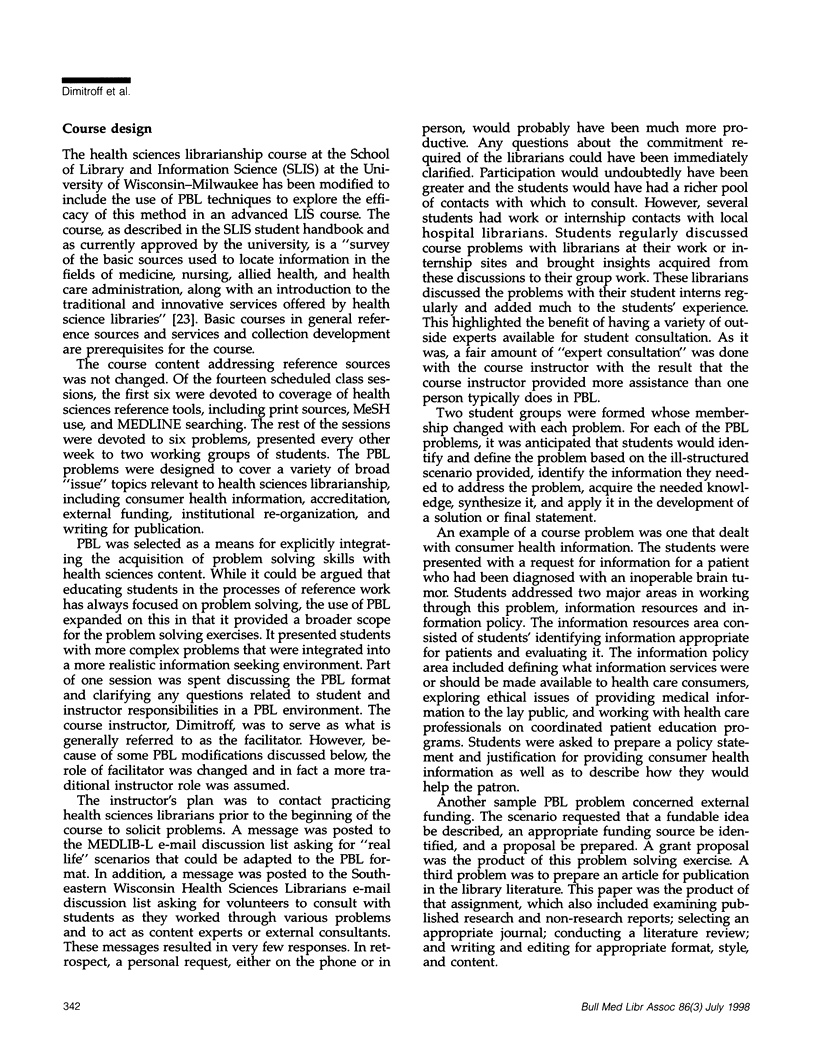
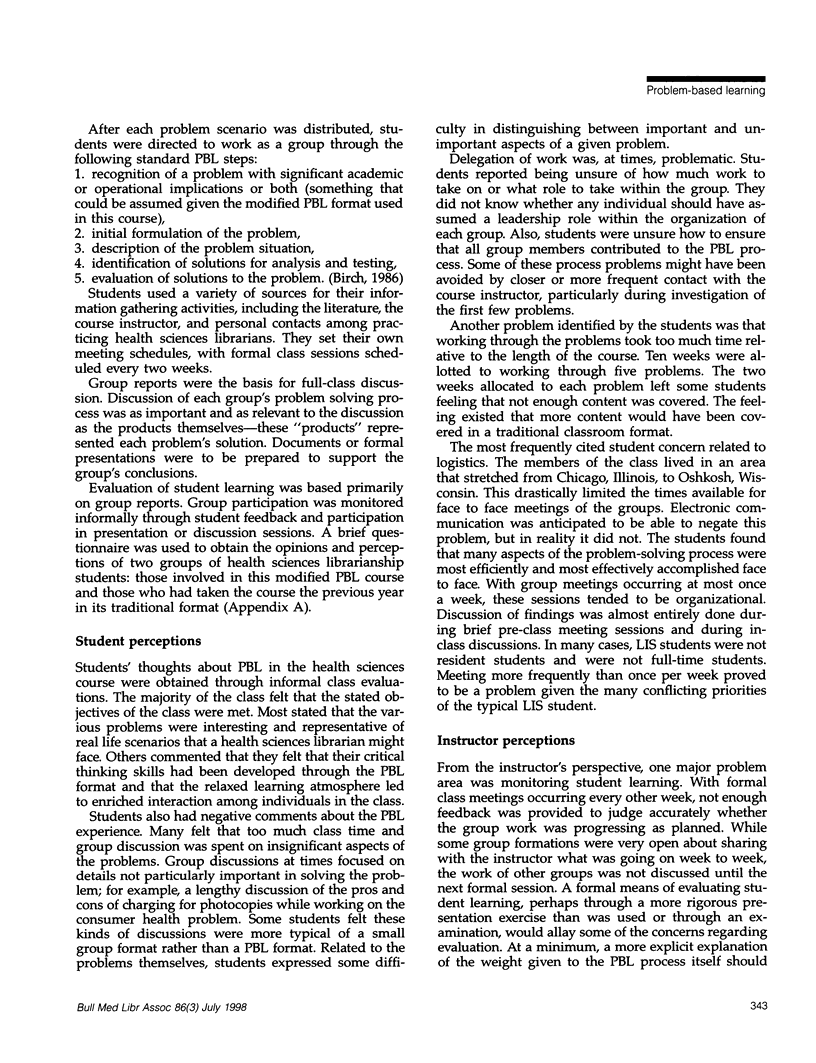
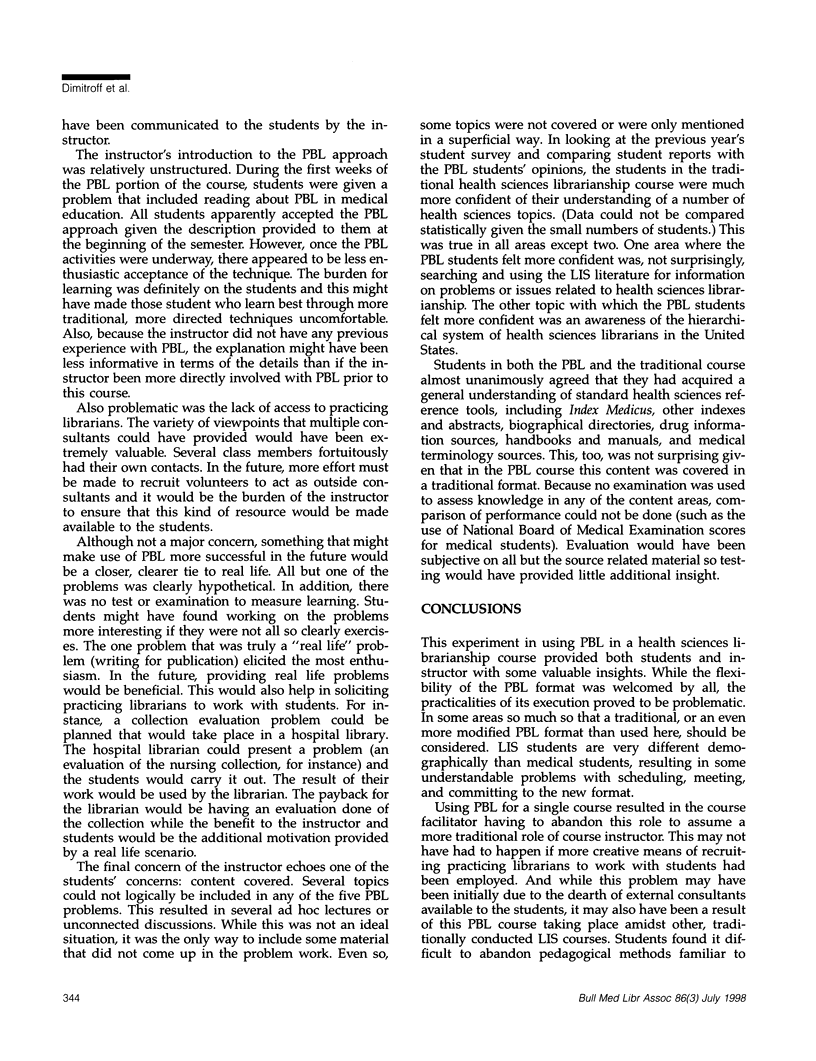
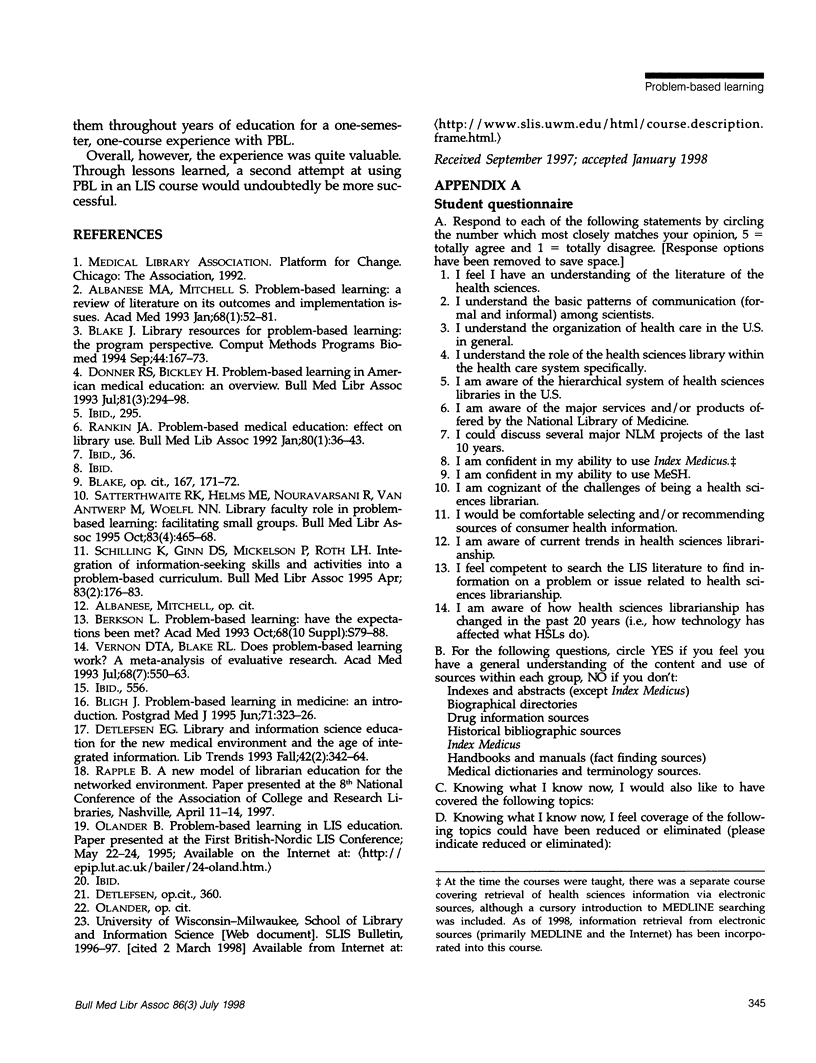
Selected References
These references are in PubMed. This may not be the complete list of references from this article.
- Albanese M. A., Mitchell S. Problem-based learning: a review of literature on its outcomes and implementation issues. Acad Med. 1993 Jan;68(1):52–81. doi: 10.1097/00001888-199301000-00012. [DOI] [PubMed] [Google Scholar]
- Berkson L. Problem-based learning: have the expectations been met? Acad Med. 1993 Oct;68(10 Suppl):S79–S88. doi: 10.1097/00001888-199310000-00053. [DOI] [PubMed] [Google Scholar]
- Blake J. Library resources for problem-based learning: the program perspective. Comput Methods Programs Biomed. 1994 Sep;44(3-4):167–173. doi: 10.1016/0169-2607(94)90110-4. [DOI] [PubMed] [Google Scholar]
- Bligh J. Problem-based learning in medicine: an introduction. Postgrad Med J. 1995 Jun;71(836):323–326. doi: 10.1136/pgmj.71.836.323. [DOI] [PMC free article] [PubMed] [Google Scholar]
- Donner R. S., Bickley H. Problem-based learning in American medical education: an overview. Bull Med Libr Assoc. 1993 Jul;81(3):294–298. [PMC free article] [PubMed] [Google Scholar]
- Rankin J. A. Problem-based medical education: effect on library use. Bull Med Libr Assoc. 1992 Jan;80(1):36–43. [PMC free article] [PubMed] [Google Scholar]
- Satterthwaite R. K., Helms M. E., Nouravarsani R., Van Antwerp M., Woelfl N. N. Library faculty role in problem-based learning: facilitating small groups. Bull Med Libr Assoc. 1995 Oct;83(4):465–468. [PMC free article] [PubMed] [Google Scholar]
- Schilling K., Ginn D. S., Mickelson P., Roth L. H. Integration of information-seeking skills and activities into a problem-based curriculum. Bull Med Libr Assoc. 1995 Apr;83(2):176–183. [PMC free article] [PubMed] [Google Scholar]
- Vernon D. T., Blake R. L. Does problem-based learning work? A meta-analysis of evaluative research. Acad Med. 1993 Jul;68(7):550–563. doi: 10.1097/00001888-199307000-00015. [DOI] [PubMed] [Google Scholar]


